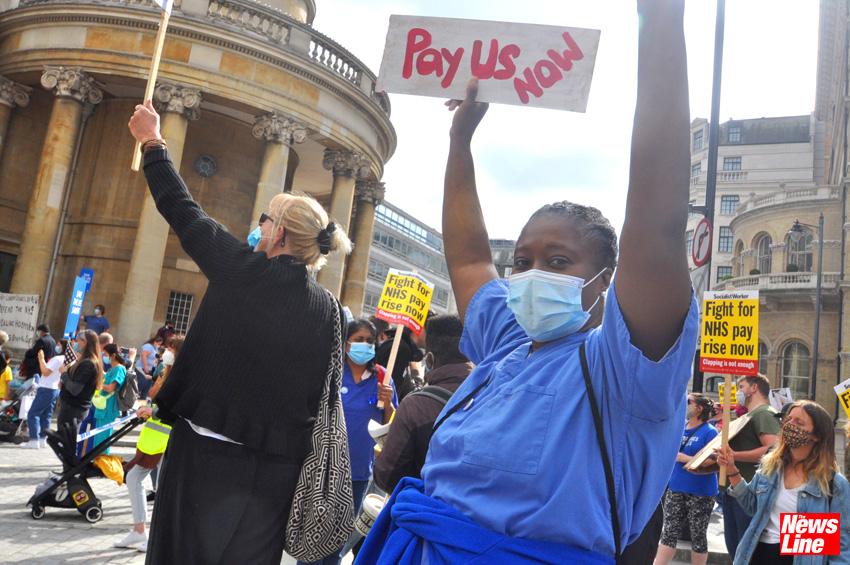CHANCELLOR Sunak began his Budget speech by drawing attention to the £280 billion already spent on Covid-19 rescue measures saying, ‘I said I would do whatever it takes; I have done; and I will do.’
He also kept the £20 uplift to Universal Credit going for an extra six months.
He pledged: ‘First, we will continue doing whatever it takes to support the British people and businesses through this moment of crisis.
‘Second, once we are on the way to recovery, we will need to begin fixing the public finances – and I want to be honest today about our plans to do that.
‘And, third, in today’s Budget we begin the work of building our future economy.’
Furloughing is to continue for more than three months after the June 21 target date for reopening the full economy. From July 1, employers will contribute 10 per cent towards the costs, rising to 20 per cent in August.
The extension of the scheme, which has kept 11 million jobs open, partly reflects fear that a sudden rise of some 6 million more very angry unemployed after June 21 would be too much of a shock for the system to take.
Other measures confirmed as being in the Budget include:
- An increase in the contactless payment limit to £100.
• £5 billion for a new grant scheme to help businesses.
• £1.65 billion to boost the UK’s vaccine rollout.
• £520 million to support small UK businesses with training and software.
- Nearly £410 million to support the badly-hit culture sector.
• £300 million to help cricket, tennis and horse racing in a summer sports recovery package.
• £150 million to help local communities save struggling pubs, sports clubs, theatres and Post Offices.
• £2.8 million to help fund a joint UK and Ireland bid to host the 2030 football World Cup.
Sunak also announced income tax and corporation tax hikes, angering sections of big business, after revealing record borrowing of nearly £600 billion in over just two years.
He announced that income tax thresholds will rise once in line with the Tory manifesto pledge – but then be frozen for four years until April 2026.
The move means many thousands of low income people will be sucked into paying 20 per cent tax for the first time, while thousands of middle income people will be sucked into the higher 40 per cent tax band.
In another tax hike, corporation tax will rise to 25 per cent by 2023. But, strikingly, Sunak held his fire on the required spending cuts.
He also announced a ‘mortgage guarantee’, telling MPs: ‘Lenders who provide mortgages to homebuyers who can only afford a 5% deposit will benefit from a government guarantee on those mortgages.’
He added that the stamp duty cut will continue until the end of June, with the nil rate band set at £250,000 – double its standard level – until the end of September.
Business was however angry at the ‘risky’ scale of the corporation tax hike, from 19p to 25p. ‘That’s a huge increase in rate of corporation tax,’ tweeted Paul Johnson of the Institute for Fiscal Studies. ‘Right at top end of expectations. Extraordinary reversal of longstanding policy. Risky.’
Sunak tried to sweeten the pill for business by announcing more generous tax relief for firms that invest in new plant. He called it a ‘pro-business tax regime’ and told MPs: ‘While many businesses are struggling, others have been able to build up significant cash reserves. We need to unlock that investment, we need an investment-led recovery.’
His scheme, called ‘super deduction’, means that for the next two years companies can reduce their tax bill by investing. The OBR said it could boost business investment by 10 per cent, or around £20 billion extra per year, Sunak said.
He told MPs he will borrow £355 billion this year and £243 billion next year, and warned it will take ‘decades’ to repay.
‘The amount we’ve borrowed is only comparable with the amount we borrowed during the two world wars,’ he said.
‘It is going to be the work of many governments, over many decades, to pay it back.’
The government has splashed out an astonishing £352 billion on ‘help’ so far, rising to £407 billion after the new measures.
The expectation is that if an economic crash can be avoided in the next few months, things will come to a head after the end of furloughing next September, when the working class will have to take decisive measures against the Tories if there is to be no return to the ‘hungry 1930s’.
